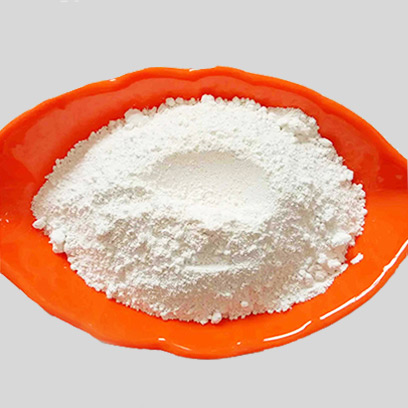
Oct . 11, 2024 13:22 Back to list
Synthesis and Characterization of Barium Sulfate Nanoparticles for Industrial Applications
The Significance of Synthetic Barium Sulphate
Barium sulphate, a white crystalline solid, has garnered considerable attention across various industries due to its unique properties and versatile applications. Synthetic barium sulphate, in particular, is produced through controlled chemical processes and offers higher purity and consistency than its naturally occurring counterpart. This article focuses on the significance of synthetic barium sulphate, exploring its production methods, properties, and diverse applications.
Production Methods
Synthetic barium sulphate is primarily produced through the reaction of barium chloride with sodium sulphate. This process is conducted under specific conditions that facilitate the formation of pure barium sulphate crystals while minimizing the presence of impurities. The controlled environment of synthetic production also allows for the adjustment of particle size, which is crucial for various industrial applications.
Another method of producing synthetic barium sulphate involves the precipitation of barium carbonate from barium hydroxide using a sulphuric acid solution. This method enables the production of high-quality barium sulphate with controlled particle morphology, further enhancing its utility in industries such as plastics, paints, and pharmaceuticals.
Properties
The distinctive properties of synthetic barium sulphate contribute to its prominence in many fields. One of the most notable characteristics is its exceptional inertness, which means it does not react with many chemicals, making it a safe additive in numerous formulations. Moreover, barium sulphate exhibits high density and whiteness, rendering it an ideal pigment for paints and coatings.
Another significant feature of synthetic barium sulphate is its insolubility in water and organic solvents
. This property makes it especially valuable in applications where water solubility would be detrimental, such as in the formulation of plastics, where it helps improve the material's mechanical properties without altering the polymer's inherent characteristics.synthetic barium sulphate

Applications
1. Pharmaceuticals One of the most crucial applications of synthetic barium sulphate is as a radiopaque agent in medical imaging. When administered to patients undergoing X-ray or CT scans, it enhances the contrast of images, allowing healthcare providers to visualize internal structures such as the gastrointestinal tract clearly. The non-toxic nature of synthetic barium sulphate makes it a preferred choice for such applications.
2. Plastics and Composites In the plastics industry, synthetic barium sulphate is utilized as a filler to improve the density and mechanical strength of various plastic products. It enhances impact resistance and thermal stability, making it an excellent additive for both rigid and flexible plastics. Additionally, its high whiteness contributes to better color consistency in finished products.
3. Pigments and Coatings Synthetic barium sulphate is widely used as a white pigment in paints, inks, and coatings. Its high level of brightness and opacity makes it an effective substitute for titanium dioxide in certain applications. It provides excellent hiding power, ensuring that the underlying surfaces are adequately concealed while maintaining the desired aesthetic quality.
4. Paper Industry In the paper manufacturing process, synthetic barium sulphate acts as a filler, improving the paper's brightness and printability. It contributes to the smoothness of paper surfaces, making it ideal for high-quality printing applications. The use of synthetic barium sulphate can enhance paper's mechanical properties, such as tear and tensile strength, thereby improving its overall performance.
5. Rubber Industry In the rubber industry, synthetic barium sulphate is used as a filler to enhance the mechanical properties of rubber compounds. Its inertness and high density contribute to the improved durability and performance of rubber products in various applications, including tires and industrial rubber goods.
Conclusion
Synthetic barium sulphate plays a vital role in numerous industries, given its favorable properties and versatility. From enhancing medical imaging techniques to improving the performance of plastics and paints, its applications are diverse and impactful. As industries continue to evolve, the demand for high-quality synthetic barium sulphate is expected to grow, reinforcing its importance in modern manufacturing and technological advancements. The ongoing research into its potential applications underscores the need for continued innovation, ensuring that synthetic barium sulphate remains a critical component in various fields for years to come.
-
Premium 6618 Titanium Dioxide for GPT-4 Turbo Applications
NewsJul.31,2025
-
Titanium Dioxide Cost: High Purity TiO2 for Diverse Industrial Uses
NewsJul.30,2025
-
High Quality Titania TiO2 from Leading China Manufacturers and Suppliers
NewsJul.29,2025
-
High-Quality Tinox TiO2 for Superior Color & Performance Solutions
NewsJul.29,2025
-
High Quality Titania TiO2 from Leading China Supplier & Manufacturer
NewsJul.29,2025
-
High-Performance r6618 TiO2 for Superior Whitening and Versatility
NewsJul.28,2025
